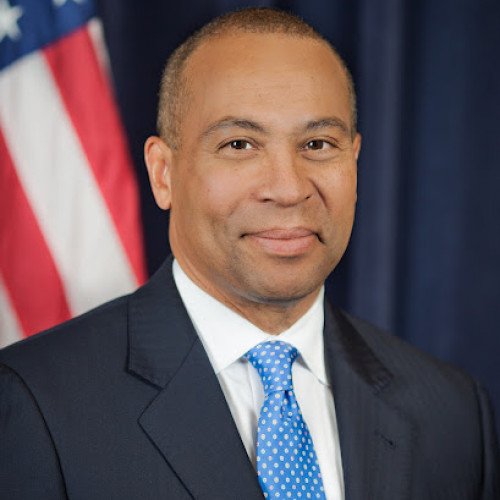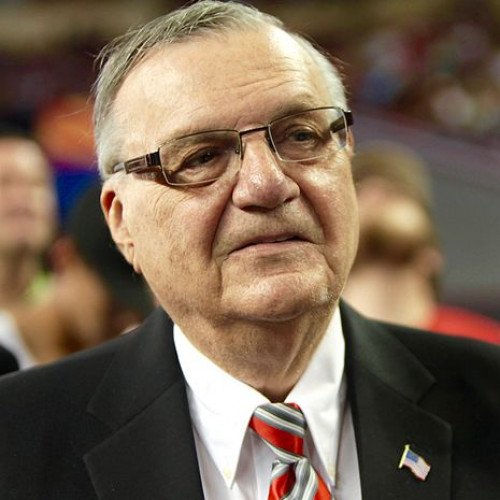Deval Patrick VS Joe Arpaio

Deval Patrick
Deval Laurdine Patrick (born July 31, 1956) is an American politician, civil rights lawyer, author, and businessman who served as the 71st governor of Massachusetts from 2007 to 2015. He was first elected in 2006, succeeding Mitt Romney, who chose not to run for reelection to focus on his presidential campaign. He was reelected in 2010. He was the first African American Governor of Massachusetts. A Democrat, Patrick served from 1994 to 1997 as the United States Assistant Attorney General for the Civil Rights Division under President Bill Clinton. He was briefly a candidate for President of the United States in the 2020 U.S. presidential election. Raised largely by a single mother on the South Side of Chicago, Patrick earned a scholarship to Milton Academy in Milton, Massachusetts in the eighth grade. He went on to attend Harvard College and Harvard Law School, where he was president of the Harvard Legal Aid Bureau. After graduating, he practiced law with the NAACP Legal Defense and Educational Fund and later joined a Boston law firm, where he was named a partner at age 34. In 1994, Bill Clinton appointed him as the United States assistant attorney general for the civil rights division of the United States Department of Justice, where he worked on issues including racial profiling and police misconduct. During his governorship, Patrick oversaw the implementation of the state's 2006 health care reform program which had been enacted under Mitt Romney, increased funding to education and life sciences, won a federal Race to the Top education grant, passed an overhaul of governance of the state transportation function, signing a law to create the Massachusetts Department of Transportation, increased the state sales tax from 5% to 6.25%, raised the state's minimum wage from $8 per hour to $11 by 2017, and planned the introduction of casinos to the state. Under Patrick, Massachusetts joined the Regional Greenhouse Gas Initiative (RGGI) in an effort to reduce greenhouse gas emissions. Shortly after Patrick's second term began on January 6, 2011, he declared he would not seek re-election in 2014.Patrick is a managing director at Bain Capital and serves as the chairman of the board for Our Generation Speaks, a fellowship program and startup incubator whose mission is to bring together young Israeli and Palestinian leaders through entrepreneurship. He also holds a Board of Directors position at telehealth company American Well.Members of his own inner circle and Barack Obama's inner circle encouraged Patrick to run for president in 2020, but Patrick ruled out a 2020 presidential bid in December 2018. In November 2019, however, uneasy about the existing field of Democratic candidates, Patrick was reported to have called a few leading Democrats and allies to say that he would soon announce a 2020 presidential bid. He formally entered the race on November 14, 2019. He ended his campaign on February 12, 2020, following a very poor showing in the Iowa caucus and the New Hampshire primary.
Statistics for this Xoptio

Joe Arpaio
Joseph Michael Arpaio (; born June 14, 1932) is an American former law enforcement officer and politician. He served as the 36th Sheriff of Maricopa County, Arizona for 24 years, from 1993 to 2017, losing reelection to Democrat Paul Penzone in 2016. Starting in 2005, Arpaio took an outspoken stance against illegal immigration, styling himself as "America's Toughest Sheriff". In 2010, he became a flashpoint for opposition to Arizona's SB1070 anti-illegal immigrant law, which was largely struck down by the Supreme Court of the United States. Arpaio is also known for investigating former U.S. President Barack Obama's birth certificate, and, as of 2018, he continued to claim without evidence that it was forged.Arpaio has been accused of numerous types of police misconduct, including abuse of power, misuse of funds, failure to investigate sex crimes, criminal negligence, abuse of suspects in custody, improper clearance of cases, unlawful enforcement of immigration laws, and election law violations. A Federal court monitor was appointed to oversee his office's operations because of complaints of racial profiling. The U.S. Department of Justice concluded that Arpaio oversaw the worst pattern of racial profiling in U.S. history, and subsequently filed suit against him for unlawful discriminatory police conduct. Arpaio and the MCSO were named as defendants in dozens of civil lawsuits brought by citizens arrested by Arpaio and his deputies alleging wrongful arrest, wrongful death, entrapment and other claims, costing taxpayers in Maricopa County over $140 million in litigation against Arpaio during his tenure as sheriff.Over the course of his career, Arpaio was the subject of several federal civil rights lawsuits. In one case, he was a defendant in a decade-long suit in which a federal court issued an injunction barring him from conducting further "immigration round-ups". A federal court subsequently found that after the order was issued, Arpaio's office continued to detain "persons for further investigation without reasonable suspicion that a crime has been or is being committed." In July 2017, he was convicted of criminal contempt of court, a crime for which he was pardoned by President Donald Trump on August 25, 2017. In a separate racial-profiling case which concluded in 2013, Arpaio and his subordinates were found to have unfairly targeted Hispanics in conducting traffic stops.Although Arpaio sought another term as Maricopa County Sheriff in 2016, the contempt of court conviction eroded much of his remaining political support, and he was defeated in the election by Paul Penzone, a Democrat who reversed many of Arpaio's policies after taking office. Arpaio was an unsuccessful candidate in Arizona's Republican primary election for U.S. Senate in 2018. On August 25, 2019, Arpaio issued a statement saying that he would run for sheriff of Maricopa County in 2020. He lost the August 2020 primary election.